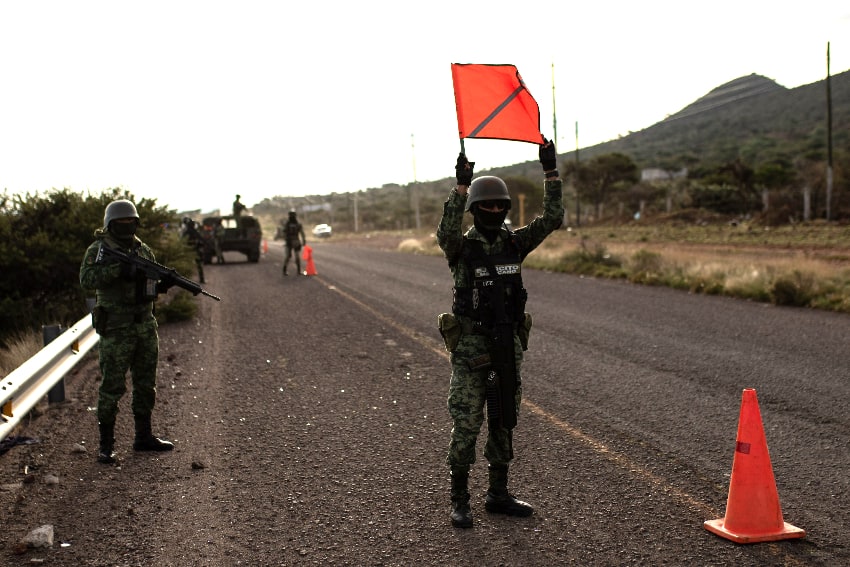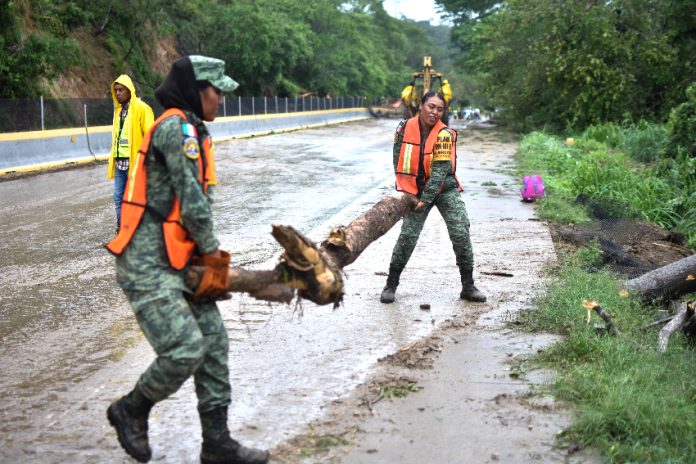President Andrés Manuel López Obrador has given the military yet another job: maintaining the nation’s highways.
At his morning press conference on Tuesday, López Obrador acknowledged that he had assigned the task of maintaining some federal highways to the Defense Ministry (Sedena).
He explained that the Ministry of Infrastructure, Communications and Transport (SICT) previously contracted private companies to maintain highways.
“But they didn’t do the job well” and “there were swindles,” López Obrador said.
He said that he had informed the minister of infrastructure, communications and transport, Jorge Nuño Lara, that military engineers would assume responsibility for the highway maintenance program in the southeast of the country using machinery purchased for the Maya Train railroad project. Roads were damaged in the region due to their use by trucks transporting ballast for the railroad, according to the president.
It hasn’t been confirmed, but it appears likely that the military will also assume responsibility for highway maintenance projects in other parts of the country.

López Obrador asserted that the army could do a better job fixing highways than private companies. He also said it could complete projects more quickly and at a lower cost.
The military engineers provide a “guarantee” that the government will fulfill its commitment to leave the nation’s highways in good shape when it leaves office in late 2024, he said.
The president has relied heavily on the armed forces since taking office in 2018, using the army and navy for a wide range of tasks including public security, infrastructure construction, the management of customs, ports and airports and the administration of public companies such as those responsible for the Maya Train railroad and the state-owned airline Mexicana.
He has faced criticism for his extensive use of the military, including from billionaire businessman Carlos Slim, who asserted last week that the armed forces are “in too many things.”
![]()
López Obrador’s remarks about the new role he has assigned the army came after the Reforma newspaper and other news outlets reported Monday that he had ordered Sedena to take charge of maintaining the nation’s highways. Reforma’s reporting was based on a Jan. 20 letter from a military official to Nuño Lara in which the former seeks information about highway projects planned for this year so that the army can prepare to carry them out.
Earlier this month, the SICT canceled the government’s 2024 “highway conservation” program, which “had 559 tenders underway” and estimated funding of 11 billion pesos (US $644.6 million), according to Reforma.
The Mexican Chamber of the Construction Industry (CMIC) on Monday expressed its “profound concern” about the cancellation of the program given that “good maintenance of the national highway network is the basis for the development of the country’s economy.”
“The lack of investment in the maintenance and conservation of highways has been a constant for several years, which with it has brought a significant deterioration in the country’s transport infrastructure, affecting Mexico’s competitiveness,” the chamber said in a statement.
“A highway network in poor condition increases transport costs, reduces logistical efficiency, affects road safety, increases accidents [and] reduces investment, both national and foreign,” CIMIC said.
It was unclear how much of the canceled program’s funding will go to Sedena for highway maintenance, but the amount of government money the army manages will almost certainly increase as the result of the new task it has been assigned.
“The military manages at its discretion and in opacity a purse of 77 billion pesos, and now it will have the resources available for highway maintenance,” Reforma reported.
In addition to insufficient maintenance, insecurity is a major concern on Mexican highways.
Freight trucks are frequently targeted by thieves, leading truckers to protest insecurity by going on strike. One strike was held Feb. 5 and another followed last Thursday.
With reports from El Universal, Latinus and Reforma
